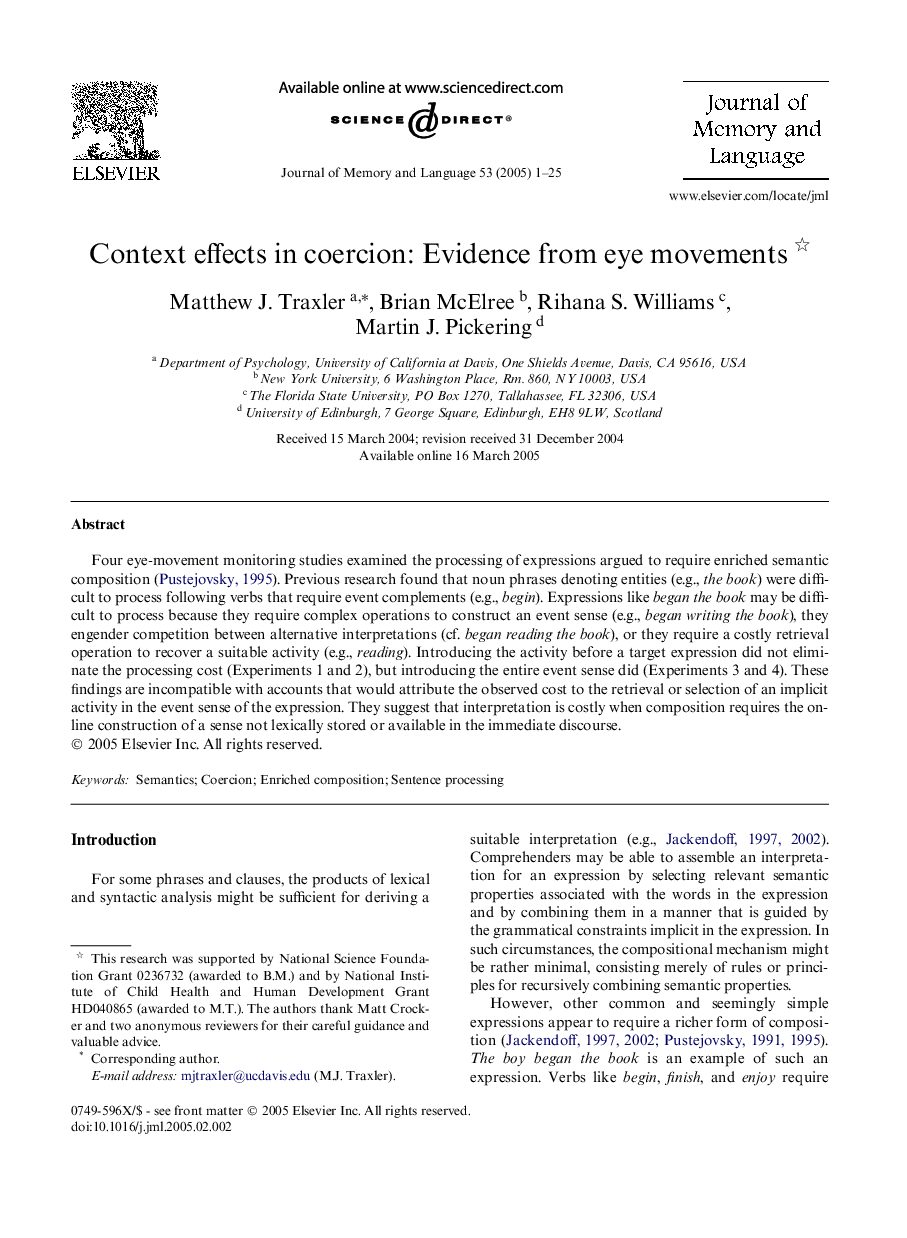| Article ID | Journal | Published Year | Pages | File Type |
|---|---|---|---|---|
| 10459825 | Journal of Memory and Language | 2005 | 25 Pages |
Abstract
Four eye-movement monitoring studies examined the processing of expressions argued to require enriched semantic composition (Pustejovsky, 1995). Previous research found that noun phrases denoting entities (e.g., the book) were difficult to process following verbs that require event complements (e.g., begin). Expressions like began the book may be difficult to process because they require complex operations to construct an event sense (e.g., began writing the book), they engender competition between alternative interpretations (cf. began reading the book), or they require a costly retrieval operation to recover a suitable activity (e.g., reading). Introducing the activity before a target expression did not eliminate the processing cost (Experiments 1 and 2), but introducing the entire event sense did (Experiments 3 and 4). These findings are incompatible with accounts that would attribute the observed cost to the retrieval or selection of an implicit activity in the event sense of the expression. They suggest that interpretation is costly when composition requires the on-line construction of a sense not lexically stored or available in the immediate discourse.
Keywords
Related Topics
Life Sciences
Neuroscience
Cognitive Neuroscience
Authors
Matthew J. Traxler, Brian McElree, Rihana S. Williams, Martin J. Pickering,
